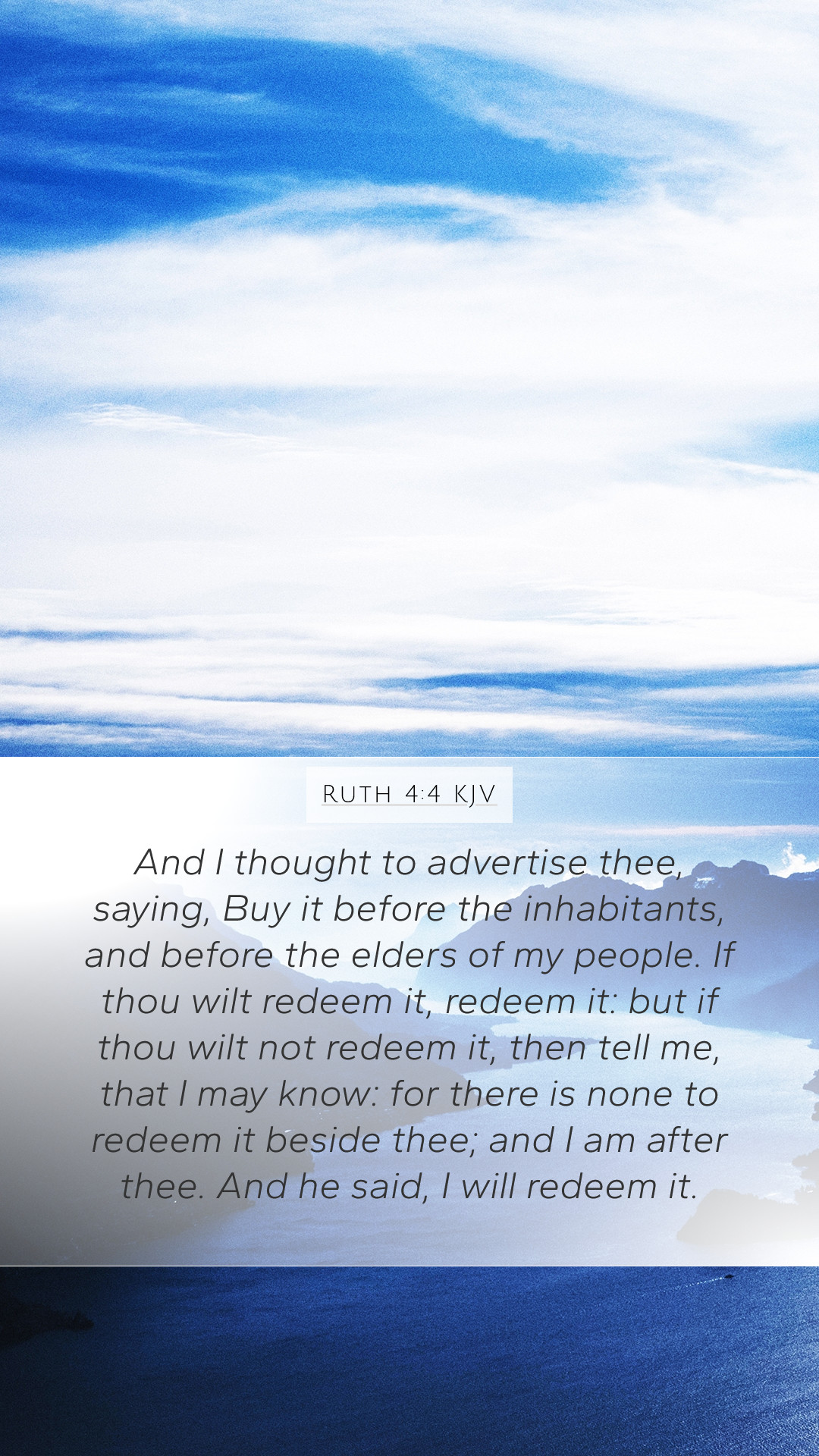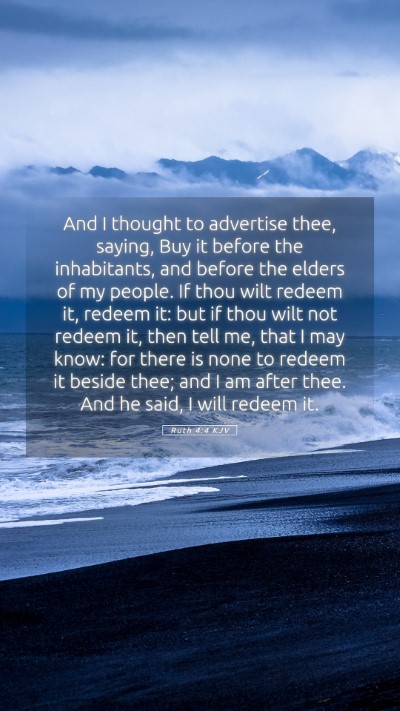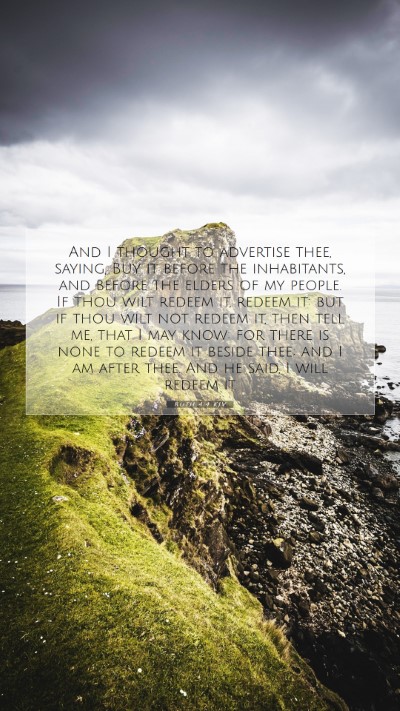Old Testament
Genesis Exodus Leviticus Numbers Deuteronomy Joshua Judges Ruth 1 Samuel 2 Samuel 1 Kings 2 Kings 1 Chronicles 2 Chronicles Ezra Nehemiah Esther Job Psalms Proverbs Ecclesiastes Song of Solomon Isaiah Jeremiah Lamentations Ezekiel Daniel Hosea Joel Amos Obadiah Jonah Micah Nahum Habakkuk Zephaniah Haggai Zechariah MalachiRuth 4:4 Meaning
What is the meaning of Ruth 4:4?
And I thought to advertise thee, saying, Buy it before the inhabitants, and before the elders of my people. If thou wilt redeem it, redeem it: but if thou wilt not redeem it, then tell me, that I may know: for there is none to redeem it beside thee; and I am after thee. And he said, I will redeem it.
Ruth 4:4 Bible Verse Meaning
Bible Verse Meaning and Interpretation of Ruth 4:4
Ruth 4:4 states: "And I thought to advertise thee, saying, Buy it before the inhabitants, and before the elders of my people. If thou wilt redeem it, redeem it: but if thou wilt not redeem it, then tell me, that I may know: for there is none to redeem it beside thee; and I am after thee." This verse is pivotal in the narrative of Ruth as it leads to the formal redemption process in the story.
Summary of Biblical Context
The Book of Ruth occurs during the time of the judges in Israel, a period marked by social turmoil and moral challenges. Ruth, a Moabite widow, seeks to support her mother-in-law Naomi. Upon returning to Bethlehem, she gleaned in the fields of Boaz, a relative of Naomi’s late husband. Ruth 4:4 captures the moment when Boaz engages with the nearer kinsman about the redemption of land and the rights associated with it.
Historical Significance
The significance of this verse lies in its legal and cultural implications within the Israelite society. According to the Hebrew law (Leviticus 25:25), a family member had the right to redeem land that had been sold due to poverty. This redemption served not only as a restoration of property but also a means of preserving family lineage and inheritance.
Commentary Insights
- Matthew Henry’s Commentary: Henry emphasizes the importance of the kinsman-redeemer. He highlights the ethical responsibilities that are intertwined with the law. The kinsman must not only be willing but also signify his intent publicly, which affirms his role in the community.
- Albert Barnes’ Notes: Barnes notes the strategic presentation by Boaz, showing wisdom in ensuring that the nearer kinsman had the opportunity to redeem first. This underscores the principle of rightful ownership and duty to one's family.
- Adam Clarke’s Commentary: Clarke offers insights into the social practices of the time, noting that this exchange signifies a public declaration, establishing the legitimacy of the transaction and highlighting the integrity of both parties involved.
Deepening Understanding of the Verse
This verse illustrates several key themes central to Biblical understanding:
- Redemption: The concept of redemption is prevalent throughout the Bible, symbolizing deliverance and restoration. In this context, it reflects both physical and familial redemption.
- Community Responsibility: Boaz’s actions demonstrate accountability within community relationships, emphasizing that personal interests should align with the welfare of others.
- Faithfulness and Loyalty: Ruth's commitment to Naomi is mirrored in Boaz's willingness to act as a redeemer, showcasing a thread of loyalty that is vital to the Hebrew narrative.
Cross References
- Leviticus 25:25: Discusses the laws surrounding the redemption of property.
- Deuteronomy 25:5-10: Outlines the levirate marriage, contributing to the understanding of familial responsibilities.
- Matthew 1:5: Mentions Boaz in the genealogy of Jesus, linking the story of Ruth to the New Testament and highlighting its importance in Christian theology.
Conclusion
Understanding Ruth 4:4 adds depth to the narrative of Ruth and highlights essential Biblical themes such as redemption, community responsibility, and faithfulness. This verse serves as a framework for exploring broader theological implications and encourages readers to delve into the significance of relationships and responsibilities within Scripture.


